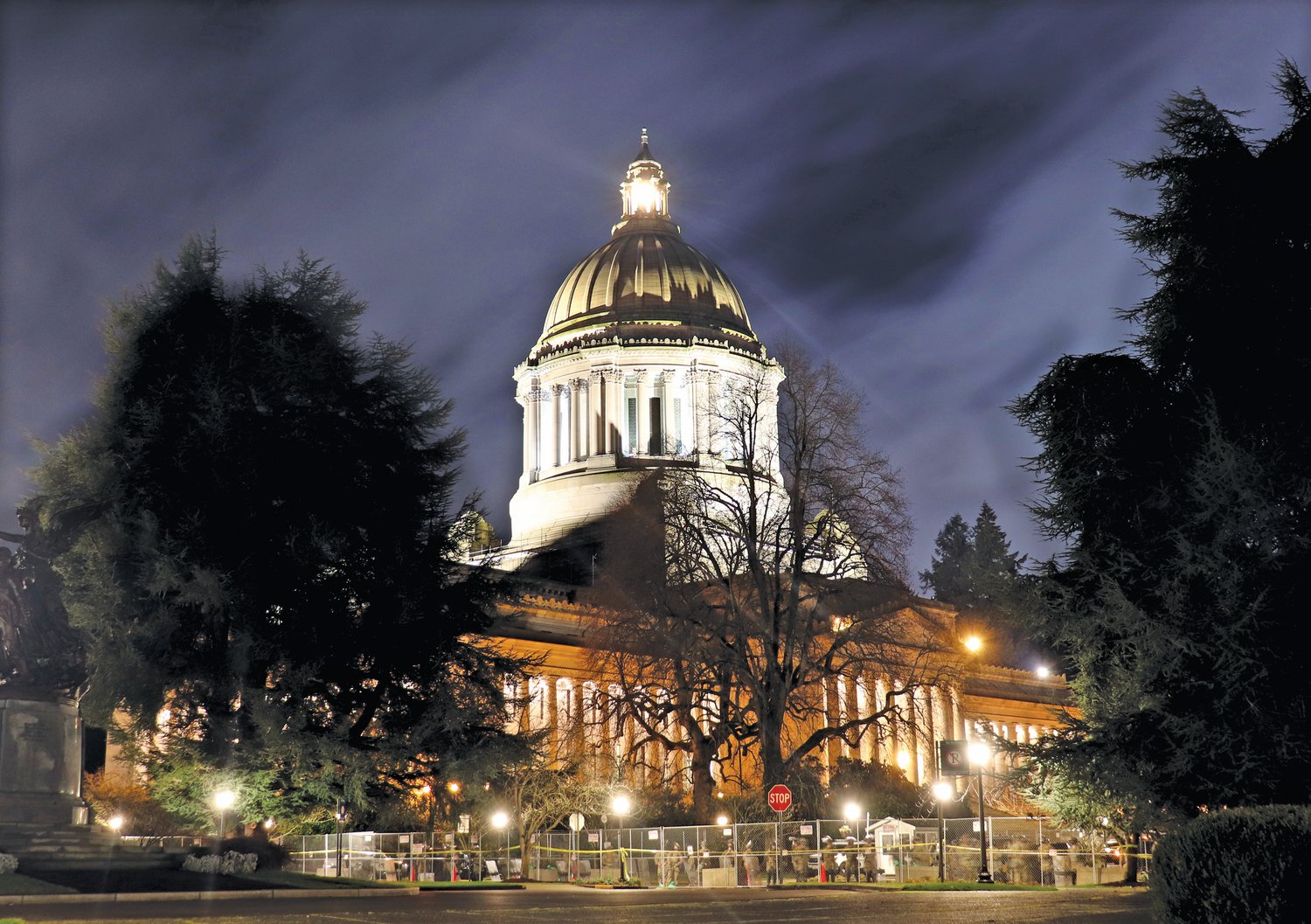
The Washington State Legislature’s 2021 regular session concluded on April 25 after passing 340 bills, 257 of which had been signed in whole or in part by Gov Jay Inslee by press time.
The Legislature also finalized and passed the $59 billion 2021-23 budget.
The effects of the COVID-19 pandemic were felt throughout the session. Legislative officials were masked and separated by plexiglass panes, and many opted to telework. HB 1368 appropriated $2.2 billion in federal funding for pandemic response, with most of the funding going to schools, public health, businesses and housing assistance. Unemployment coverage was extended, and the minimum benefit amount was increased by one-third. Several other bills ramped up benefits for COVID-affected organizations and offered tax deferrals for struggling businesses.
A number of bills addressed the indirect effects of COVID-19 and made provisions to ease challenges from social distancing and telework. Schools were granted the option to waive graduation requirements during a state or local emergency, and the waivers were retroactively extended to the class of 2020. Several bills revised regulations to allow them to function in an environment of remote communication and telework. SB 5077, for example, allowed mortgage brokers to work from home without their brokerage, “licensing the residence as a branch office of the company.”
Other events of the past year also made their presence felt, including the large-scale protests against racial injustice and police brutality. A major bill delivered to the governor’s desk would establish new use-of-force standards for police officers. A companion bill would ban chokeholds, prohibit no-knock warrants and institute new restrictions on the use of tear gas. A new arbitration process was authorized for grievances against law enforcement, and another bill funded outreach grants to increase the diversity of law enforcement candidates.
Efforts at justice reform didn’t stop with police. HB 1078 would provide the automatic restoration of voter rights for felons at the end of their incarceration, and EHB 1090 banned the state from operating or contracting with private prisons. Other bills instituted mandatory equity training in teaching certificate renewal and public medical schools. SHB 1356 banned the use of Native American names and images as school mascots, with some exceptions if authorized by the represented tribe.
One of the Legislature’s most significant financial moves was instituting a 7% state capital gains tax (ESSB 5096), which affects profit made on the sale of stocks, bonds and mutual funds. The tax will go into effect Jan. 1, 2022. Real estate, retirement accounts and work-related assets such as livestock and lumber are exempted under the state’s implementation. The revenue from the tax will be added to the state’s education funding pool.
The state also responded to public concerns over cybersecurity and election fraud, setting up new safety requirements and increasing the penalties for unauthorized disclosure of sensitive information.
Legislators for district 26 had their own accomplishments. Sen. Emily Randall (D, Bremerton) sponsored multiple bills relating to equity in the health and education fields. The signed bills specifically deal with inclusion and diversity training for educators and medical professionals. A Randall-sponsored bill to create a Washington State Universal Healthcare Commission reached the governor’s desk but had not been signed by press time.
Rep. Jesse Young (R, Gig Harbor) sponsored two bills that were signed into law this session. HB 1314 states that involuntarily committed individuals must be checked for veteran benefit eligibility and referred to the VA care system if they prefer. HB 1296 allows health organizations to deduct any state mental health funding they have received from their business and operations tax.
Rep. Michelle Caldier (R, Port Orchard) was the primary sponsor of six bills, all of which were referred to committee. Caldier also inserted Section 13 into SB 5160, a bill designed to address landlord-tenant relations in the pandemic. Section 13 was vetoed by the governor, whose veto message stated it was “largely duplicative” of a bill signed earlier in the year, and would cause administrative problems. A statement issued by Caldier claimed that the language in Section 13 was provided by the state Department of Commerce, and that its passage would have helped “fix the damage the governor caused” by his eviction moratorium.
Several major bills on climate change, justice reform and education passed by the Legislature had not been signed by the governor at press time.
UNDERWRITTEN BY THE FUND FOR NONPROFIT NEWS (NEWSMATCH) AT THE MIAMI FOUNDATION, THE ANGEL GUILD, ADVERTISERS, DONORS AND PEOPLE WHO SUPPORT INDEPENDENT, NONPROFIT LOCAL NEWS